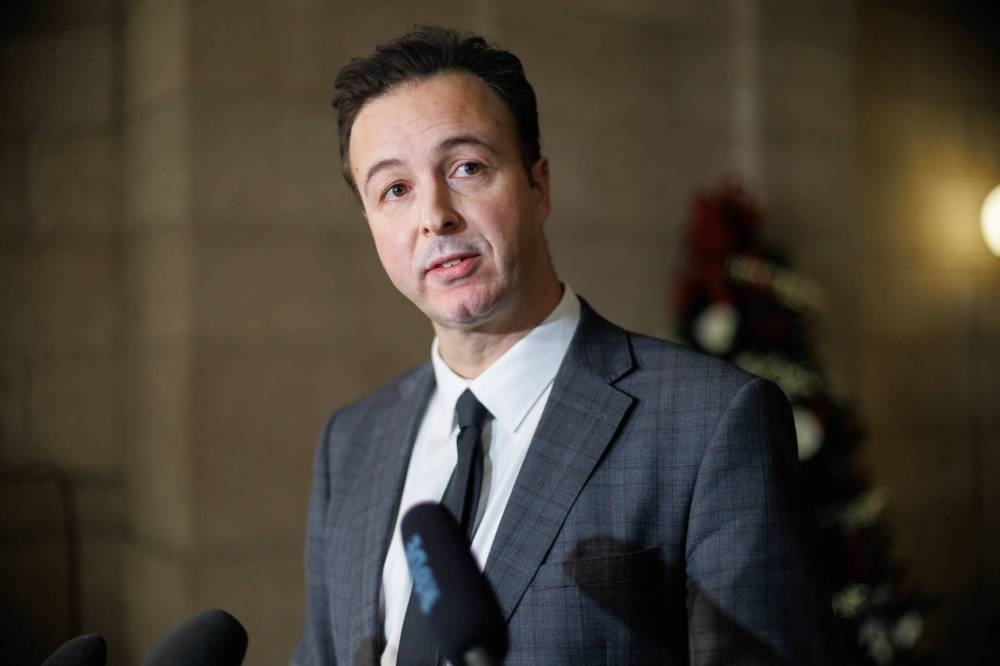Views on energy sources clash
Advertisement
Read this article for free:
or
Already have an account? Log in here »
To continue reading, please subscribe:
Monthly Digital Subscription
$0 for the first 4 weeks*
- Enjoy unlimited reading on winnipegfreepress.com
- Read the E-Edition, our digital replica newspaper
- Access News Break, our award-winning app
- Play interactive puzzles
*No charge for 4 weeks then price increases to the regular rate of $19.00 plus GST every four weeks. Offer available to new and qualified returning subscribers only. Cancel any time.
Monthly Digital Subscription
$4.75/week*
- Enjoy unlimited reading on winnipegfreepress.com
- Read the E-Edition, our digital replica newspaper
- Access News Break, our award-winning app
- Play interactive puzzles
*Billed as $19 plus GST every four weeks. Cancel any time.
To continue reading, please subscribe:
Add Free Press access to your Brandon Sun subscription for only an additional
$1 for the first 4 weeks*
*Your next subscription payment will increase by $1.00 and you will be charged $16.99 plus GST for four weeks. After four weeks, your payment will increase to $23.99 plus GST every four weeks.
Read unlimited articles for free today:
or
Already have an account? Log in here »
Hey there, time traveller!
This article was published 05/02/2024 (660 days ago), so information in it may no longer be current.
Manitoba’s public utility and provincial government appear to be on shockingly different pages about the future of local energy generation.
Last Tuesday, Manitoba Hydro’s chief executive officer, Jay Grewal, outlined plans to plug into the private market to address a growing demand for electricity.
New wind farms, independent producers and power purchase agreements were the way forward, she explained during a blunt speech to the Manitoba Chambers of Commerce.

MIKE DEAL / WINNIPEG FREE PRESS
Finance Minister and Minister Responsible for Manitoba Hydro Adrien Sala
Not 24 hours later, NDP Finance Minister Adrien Sala all but quashed the idea, stating in an interview with the Free Press that his party believes any new power generation should be publicly owned.
This apparent stalemate is something of a role-reversal for both sides.
Hydro has previously touted hydroelectricity as the gold standard of energy production in the province, with costly dam projects able to meet and surpass our energy needs for decades to come. Wind turbines were just too unreliable to carry the load.
Despite this long-held mentality, the Crown corporation has two power purchase agreements with private wind farms in southwest Manitoba — both projects were buoyed by support from previous NDP governments. Within these contracts, Hydro has signed on to buy electricity generated by the St. Leon and St. Joseph wind farms for a set period of time, 25 and 27 years, respectively.
While Hydro’s aversion to private wind power development seems to have softened under Grewal’s leadership, the current government’s appetite for independent energy production has waned when compared to its predecessor.
It’s imperative that both parties find common ground — the future of our energy supply and ability to meet federal net zero emission targets depend on it.
Manitoba’s public utility does not have the capacity to meet growing demand in an increasingly electrified world. Our grid will need to tap into new power sources by the end of this decade to accommodate more electric vehicles and increasing demand for green energy.
Yet, Hydro has no plans to build more generating stations owing to its massive debt load of $24.6 billion, which accounts for 40 per cent of the provincial government’s total.
Still, Sala — whose party has promised to temporarily freeze electricity rates — insists the corporation can find room in the budget to generate more power while continuing to service its debt. It’s estimated Hydro will have to invest roughly $27 billion to meet the expected future demands.
The math doesn’t add up.
Power purchase agreements are a growing trend in the clean energy sector, with market procurement expected to account for one-fifth of utility solar and wind expansion globally this year. These kinds of deals allow more renewable energy sources to come online quicker with fewer upfront costs to energy providers.
Manitoba’s energy grid does not need to be privatized. Public utilities help keep rates affordable for consumers, especially those in lower income brackets. But our energy grid does need to be diversified.
Droughts and unpredictable weather due to climate change have put a damper on hydroelectricity production over the last few years. We need more reliable streams of emission-free energy.
Thankfully, one thing the province and Hydro appear to agree on is the need to grow our wind power generating capacity. Exactly how these necessary new turbines will be funded remains up in the air.


